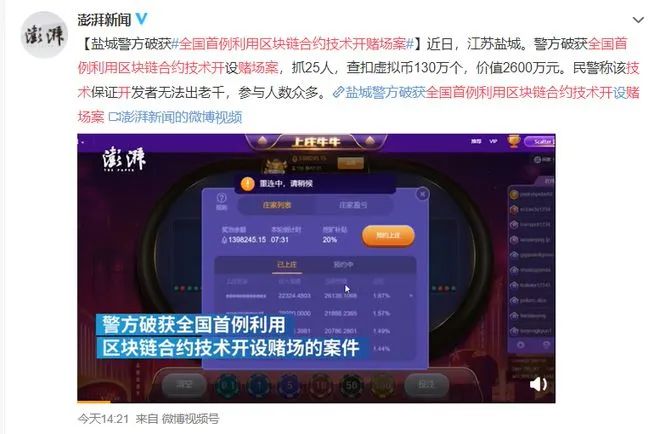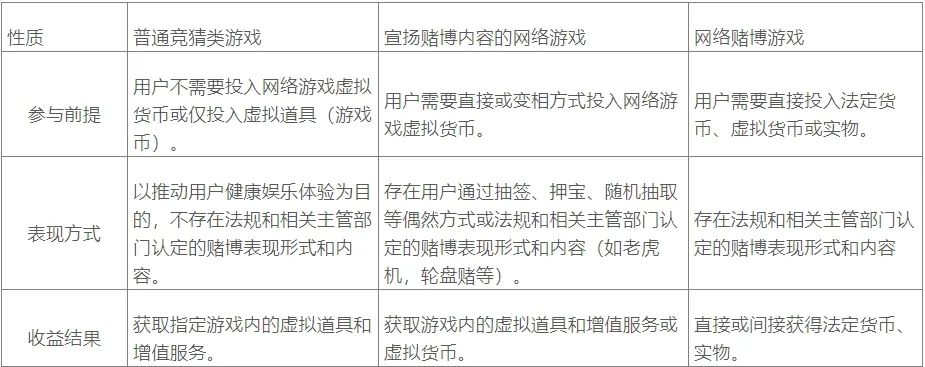Web3 Legal Education | How can GameFi games that make money while playing stay away from the gambling red line?
Web3 Legal Education | How can GameFi games avoid crossing the gambling line while generating revenue through gameplay?Preface:
In the context of policy regulation in our country, blockchain game entrepreneurs need to pay attention to avoiding gambling risks from a compliance perspective.
In the press conference held by the Supreme People’s Procuratorate on November 29, 2021, it was clearly stated that “applications suspected of gambling have a significant characteristic, which is the presence of withdrawal functions.”
The basic model of blockchain games, “play to earn,” refers to players being able to earn in-game tokens by playing games, which can be exchanged for virtual currencies such as Tether, and most blockchain game users are not playing the games for the sake of playing, but rather to buy low and sell high in order to make money from cashing out the tokens.
So, according to the description provided by the Supreme People’s Procuratorate, does the “play to earn” model of blockchain games inherently have gambling characteristics? This article explores this issue.
- Another re-entry vulnerability? Analysis of the Stars Arena attack incident
- Caroline Ellison testified in court Acting on the instructions of SBF, embezzlement of approximately $14 billion in FTX client funds.
- New Organizational Paradigm An In-Depth Explanation of the Various Aspects of DAO
01 Cases of Blockchain Games Involving Gambling
Fomo3D, which generated 70 million yuan in revenue within 16 days, is a game based on the Ethereum network. The core gameplay is “auctioning,” where each player’s bidding behavior refreshes the game countdown. The last bidder will receive 48% of the Ether in the jackpot. This “big fish eats small fish” game reportedly had a monthly revenue of 170 million yuan.
Biggame – the first case in China where a blockchain contract technology was used to establish a casino. It is an app developed by domestic personnel. Users install the Yuzhizi Coin wallet, exchange RMB for Yuzhizi Coin, and the app provides various gambling games for players to place bets.

02 What Kind of Games Are Considered Gambling?
China’s laws do not explicitly specify what types of online games constitute gambling crimes. However, we can summarize this through relevant laws and policies.
According to the Notice issued by the Office of the Ministry of Culture in 2020 on the issuance of the “Guidelines for the Supervision and Law Enforcement of Virtual Currency in Online Games,” the main differences between ordinary guessing-type online games, online games that promote gambling, and online gambling games are as follows:

From this table, we can conclude that if an online game involving gambling should have the following three characteristics:
1. Preconditions for participation: Users need to pay to purchase props/game coins within the platform.
2. Manifestation: The gameplay involves chance, and users participate in the game by “betting small to win big,” with the possibility of losses.
3. Profit results: Users withdraw funds directly or indirectly and obtain legal tender.
03 How to Determine Whether a Blockchain Game Involves Gambling
Based on the above three characteristics, we analyze them in conjunction with the characteristics of blockchain games.
1. Purchase props/game coins within the platform for a fee.
Most blockchain gaming platforms require users to purchase in-game props or tokens through payment. The specific process is as follows: users first purchase virtual currency with fiat currency through exchanges such as Binance and OKEX; then they download wallets such as TokenPocket and MetaMask and transfer the purchased virtual currency to the wallets; after connecting the wallet to the blockchain game, users can use the wallet to purchase props or tokens within the platform.
Even if a small number of blockchain games claim to be free at the beginning, it is still necessary for users to spend money in order to have a better gaming experience.
2. Withdraw directly or indirectly to obtain fiat currency.
In foreign blockchain gaming projects, users can withdraw NFTs or game tokens within the platform and convert them into virtual currencies on exchanges. In China, due to the regulations on virtual currencies, virtual currencies do not have legal tender status and are considered virtual goods. According to the relevant laws and regulations on gaming [1]: “Services that provide game points trading, exchange, or use ‘virtual currency’ as a means to indirectly exchange cash or property are not allowed.”
Therefore, for blockchain games developed in China, if the tokens issued within the game support conversion into virtual currency (cashing out), and combined with the above-mentioned characteristic 1 (buying in), it would possess the characteristics of gambling crimes.
3. Gameplay: Randomness, small investment for big rewards, possibility of losses.
Currently, blockchain games can mainly be categorized as cultivation, simulation management, sandbox, card, mining, and competitive games, etc. It is difficult to determine whether a game involves gambling based on its category, and it depends on the specific gameplay of the platform.
For example, gameplay such as blind boxes and lotteries have a high degree of randomness in determining the user’s success or failure. If the value of the game props obtained by users through paid lotteries varies greatly and there is a possibility of losses, it poses a high risk of gambling.
4. Recommendations from Lawyer Man Kun
As the legal regulations related to blockchain and the metaverse are not yet complete in China, and relevant policies hold a negative attitude towards virtual currency and mining, if a project plans to launch a blockchain game product in China, it is essential to strictly control legal procedures and risks both before and after the product launch.
Prior to the launch, a rigorous risk assessment of the game mechanism is required to prevent gambling risks;
After the launch, regular monitoring of product data is necessary to prevent users from exploiting platform vulnerabilities for gambling;
In addition, it is important to pay attention to user complaints and reports. Once related gambling activities are discovered, timely optimization and improvement of the product should be made.
[1] Notice from the Ministry of Public Security, the Ministry of Industry and Information Technology, the Ministry of Culture, and the General Administration of Press and Publication on Regulating the Order of Network Game Operations and Banning the Use of Network Games for Gambling【Document No.: Gong Tong Zi [2007] No. 3】
Service Areas: Virtual/Cryptocurrency Disputes, Criminal Defense, NFT Digital Collectibles, Bank Card Unfreezing, Criminal Compliance, Cryptocurrency Fund/Project Financing, Corporate Legal Counsel
We will continue to update Blocking; if you have any questions or suggestions, please contact us!
Was this article helpful?
93 out of 132 found this helpful
Related articles
- Closing the ‘backdoor’ opened by the god mode, is a DEX without an administrator key the future?
- Ethereum brings ‘bad news’ Futures ETF falls short of expectations, on-chain data at a low point
- South China Morning Post Article Why can’t the JPEX incident shake Hong Kong’s cryptocurrency vision?
- Forbes Binance’s Golden Touch, how did they turn failed ICO tokens into unexpected fortunes worth billions of dollars?
- Web3 Legal Popularization丨Can GameFi Go Online Without a Game License and Constitute Illegal Operations?
- Crypto Race Weekly Report [10/9/2023] Decrease in ETH Staking Rewards, POW Track on the Rise
- Polkadot Q3 Development Summary Native USDC will enter the ecosystem, staking and independent account data continue to grow.






